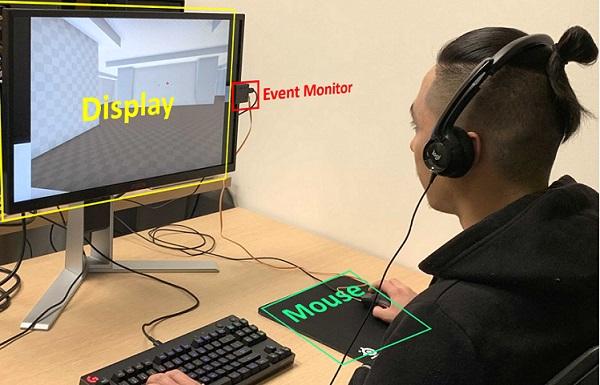Latency of 30 ms Benefits First Person Targeting Tasks More Than Refresh Rate Above 60 Hz

In competitive sports, human performance makes the difference between who wins and loses. In some competitive video games (esports), response time is an essential factor of human performance. When the athlete's equipment (computer, input and output device) responds with lower latency, it provides a measurable advantage. In this study, we isolate latency and refresh rate by artificially increasing latency when operating at high refresh rates. Eight skilled esports athletes then perform gaming-inspired first person targeting tasks under varying conditions of refresh rate and latency, completing the tasks as quickly as possible. We show that reduced latency has a clear benefit in task completion time while increased refresh rate has relatively minor effects on performance when the inherent latency reduction present at high refresh rates is removed. Additionally, for certain tracking tasks, there is a small, but marginally significant effect from high refresh rates alone.
Publication Date
Published in
External Links
Uploaded Files
Copyright
Copyright by the Association for Computing Machinery, Inc. Permission to make digital or hard copies of part or all of this work for personal or classroom use is granted without fee provided that copies are not made or distributed for profit or commercial advantage and that copies bear this notice and the full citation on the first page. Copyrights for components of this work owned by others than ACM must be honored. Abstracting with credit is permitted. To copy otherwise, to republish, to post on servers, or to redistribute to lists, requires prior specific permission and/or a fee. Request permissions from Publications Dept, ACM Inc., fax +1 (212) 869-0481, or permissions@acm.org. The definitive version of this paper can be found at ACM's Digital Library http://www.acm.org/dl/.
